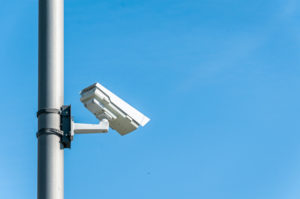A new report finds that police departments who use this technology have not provided sufficient privacy protections.
If you drive around California, you may have noticed cameras mounted on streetlight poles and even on police cars. These cameras are part of a system used by the Los Angels Police Department (LAPD) and other police agencies to collect and store license plate images. They also enable law enforcement to track a vehicle’s movement over time. Police departments can compare the images captured by these cameras with stolen cars and vehicles used during crimes — and then be alerted in real time to the location of these vehicles.
This may all seem like a dystopian nightmare — the government being able to track your movements in real time using a computer program. But as a criminal defense attorney in Orange County, CA can explain, state law permits law enfacement agencies to use these types of programs. However, they must first adopt policies and safeguards to prevent the system from being misused.
According to a newly-related audit from California State Auditor Elaine Howle, this is not happening. Howle examined the programs used by the Fresno Police Department, the Marin County Sheriff’s Office, the Sacramento County Sheriff’s Department and the LAPD. She found that none of the agencies involved in the audit consistently followed privacy practices when it came to handling and retaining images from automated license plate readers (ALPR). None of the agencies had privacy and use policies that complied with state law.
70% of all law enforcement agencies in California either have an ALPR system or planned to obtain one. The findings of the report suggest that the data obtained by these systems could be misused. Instead of law enforcement using ALPR images for a limited purpose, such as tracking a stolen car, it could be used to conduct surveillance on a person — even if they are not suspected of a crime.
In addition, law enforcement agencies have shared ALPR images with other agencies throughout the country — even though there was no evidence that these other agencies had a right or a need to access these images. This creates the possibility that law enforcement agencies have no real idea of who is using the ALPR images and for what purpose.
The vast majority of images — 99.9% collected by ALPR systems do not involve criminal activity. Nevertheless, these law enforcement agencies have retained the images — creating the possibility that the images will be used for any number of purposes in the future. Hundreds of millions of images have been collected through ALPR systems within California. The LAPD alone has collected more than 320 million ALPR images.
These images may come up in criminal cases in a number of ways. For example, the police may use old images to determine where a person was on a particular day — and then attempt to connect them to a crime. A skilled criminal defense attorney in Orange County, CA can challenge the use of these images, particularly if the law enforcement agency has not complied with state law when it comes to the privacy of these images.
If you have been charged with a crime, you will need an experienced lawyer who is on top of issues such as the use of ALPR images. It is just one of the many ways that law enforcement may invade your privacy — and one possible basis for fighting back against criminal charges.
Attorney Dan E. Chambers is a former prosecutor who has now dedicated his career to defending individuals charged with California criminal offenses. Contact the Chambers Law Firm today at 714-760-4088 or dchambers@clfca.com to schedule a free initial consultation with a criminal defense attorney in Orange County, CA.





